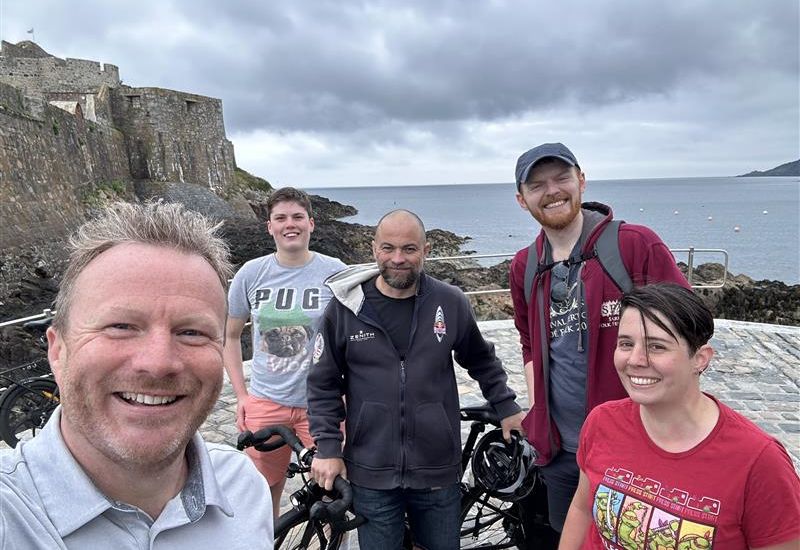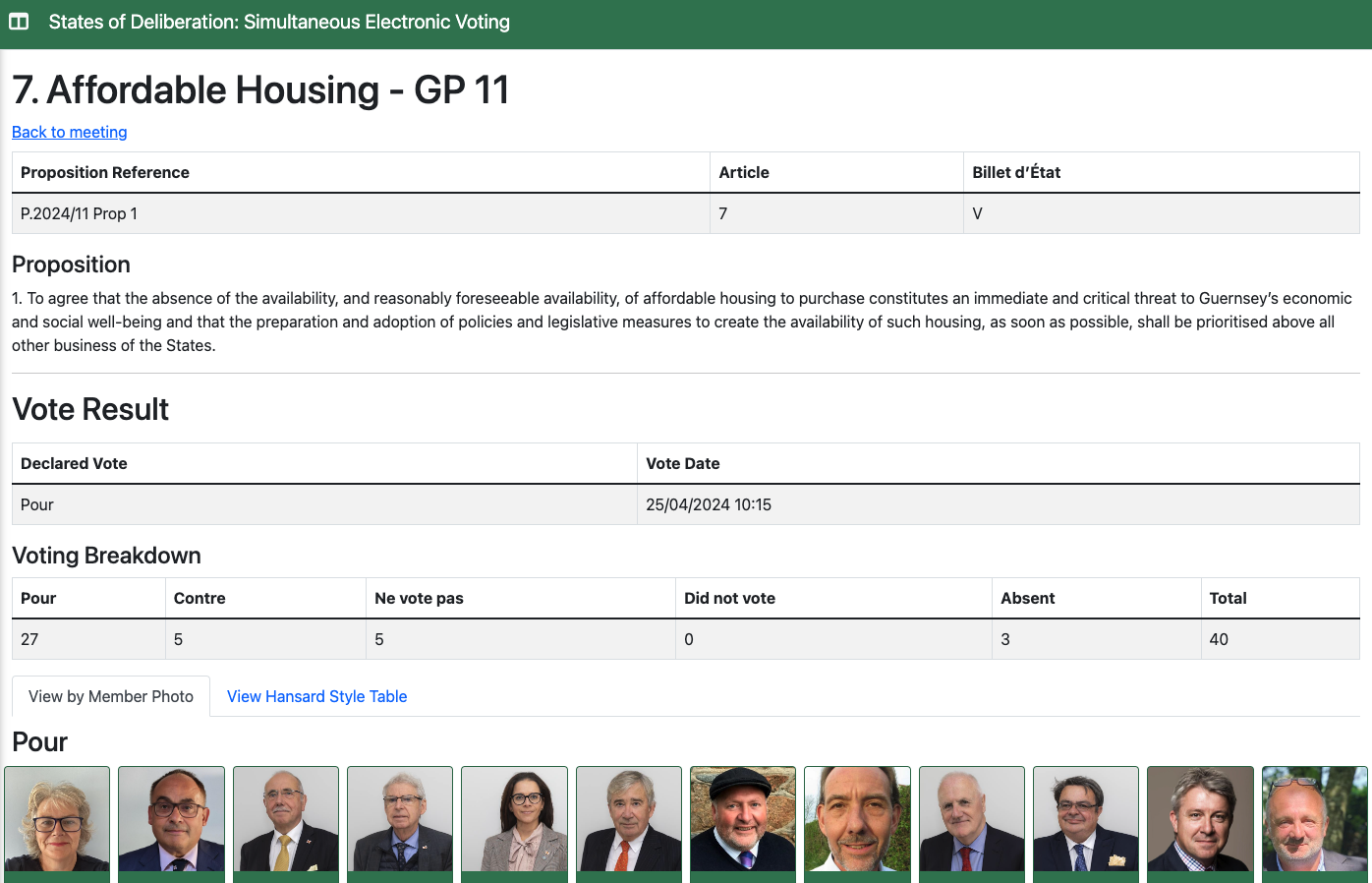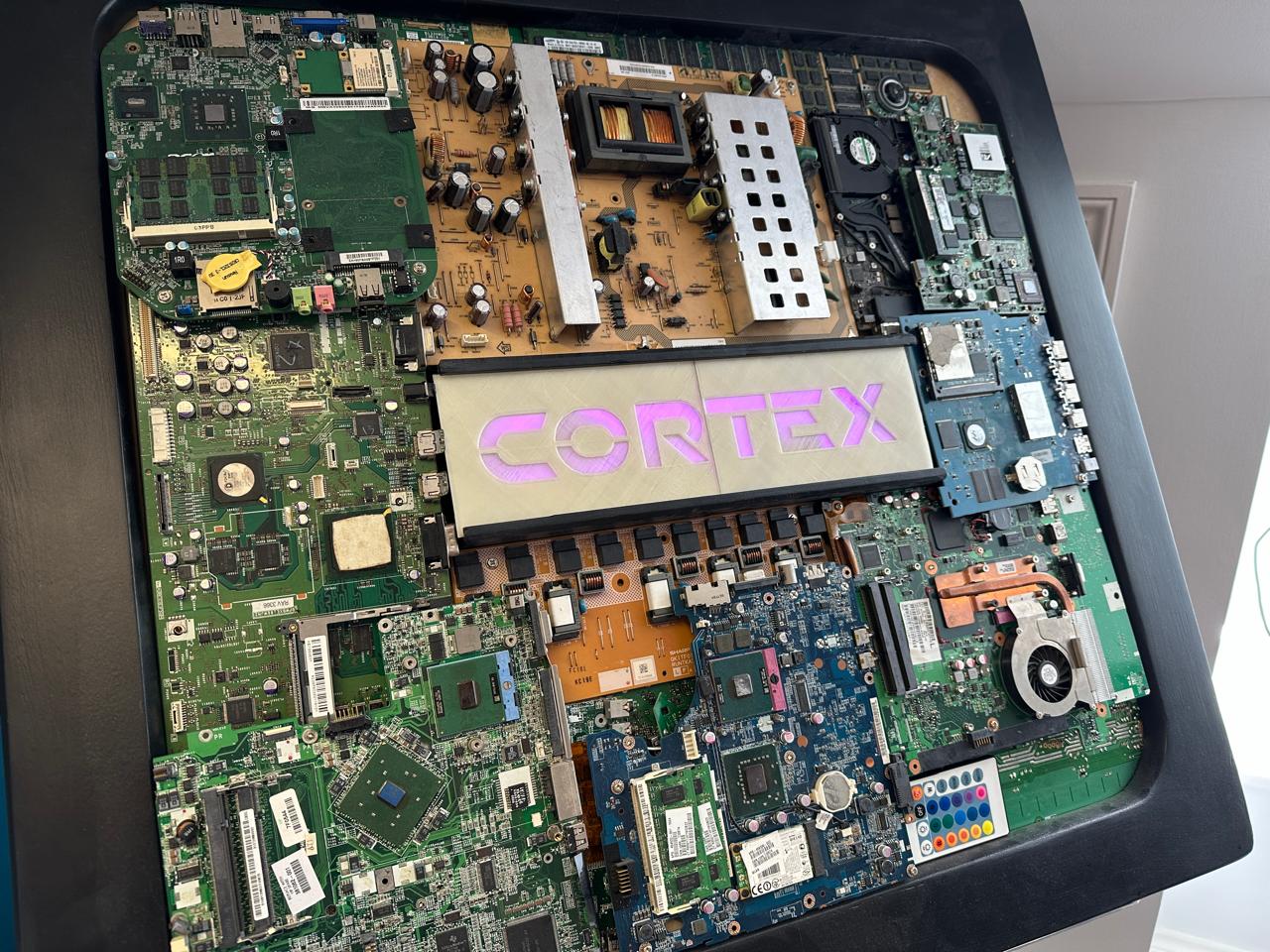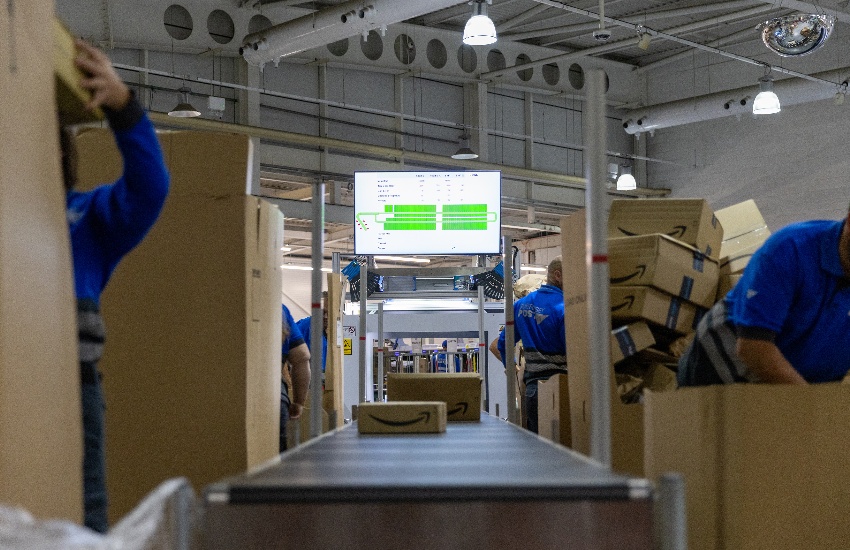


When you climb the steps up into ‘Cortex Towers’ you’re greeted with a small but decidedly geeky haven just a stone’s throw from the seat of Guernsey’s government.
The software development firm has all the hallmarks of the modern tech scene, with staff in casual attire, arcade games, a pool table and booze fridge nestled around the computers and circuit-style logo board.
It’s all a far-cry from the huge oil paintings of former bailiffs and ornate coving lining the walls of the neighbouring Royal Court House.
Cortex was born six-and-a-half years ago, entering the local IT game after fellow founders and developers Matt Thornton and Marc Beavan exited directorships at a consultancy firm to grow their passion for writing software to solve problems wherever they emerge, bolstered by a skilled and dedicated team.
Finance is the obvious client in the island, and they've developed tools to simplify regulatory and tax reporting. But the team has a desire to be “agnostic” and sell bespoke problem-solving products to whoever needs them, including the States of Guernsey and its trading entities.
Where one might expect such a firm to market itself in a clinical, direct way, they’ve opted for a different approach.
The first words to greet visitors on their homepage are “WE LIKE LONG WALKS ON THE BEACH, BACON SANDWICHES, WELL-STRUCTURED CODE AND THE HERM BEER FESTIVAL”, while they describe their products as “junk” and ongoing projects as “inflight doohickeys, oojimaflips and thingamebobs”.
“I know it looks really weird, and it's quite an odd decision to present your business in that way. But that bleeds through everything we do, whether it's how we run our office, the website, how we write our newsletters, what we post on social media, it's all intentional for numerous reasons,” Mr Thornton said.
“But the biggest one is almost a barrier that if this is who we are, this is how we run our business... you come to us with hard problems and give us the range to do it, we can do it and we'll do it properly. But you're going to find us in a pair of shorts and drinking beer on a Friday afternoon.”
Even the States have gone with Cortex to provide solutions and hard data, but it’s not always been a straightforward ride due partly to what they describe as an “awkward” and “frustrating” tender process for public contracts.
The headache and disbelief was such that in the case of the online political voting platform they simply skirted that process altogether – and the States went for what they built.
After an “extortionate” initial quote from another firm to deliver Simultaneous Electronic Voting, a Deputy approached Cortex which led to meetings with key civil servants. But even that wasn’t enough.

Pictured: The States Simultaneous Electronic Voting system was built by Cortex.
“Ultimately, we took it, we built it at our risk. There was no guarantee that they would actually pay for it. So, we built it because we recognise that having a proper voting record was really useful and really fundamental to Guernsey,” Mr Thornton recalled.
“We actually said, look, this is what you need, we'll build it for you and if you'd like it, then you pay us.”
The States paid.
“And as a taxpayer, what they were being quoted was, it was just nuts. They were being taken for a ride really. And the solution, the technical approach, was going to be pretty rubbish as well. So, we knew we could do that well and at a fraction of the cost,” Mr Beavan added.
That and other experiences with the “ridiculously stupid tender processes” have left them going cold on future working with the States in many instances.
“It is so painful to work with the local government,” Mr Beavan said.
“So many times we’ve been burnt by it,” Mr Thornton added. “SEV was the last one, but that wasn’t even a tender process.”
“If we’d have gone through the tender process, we probably wouldn’t have been awarded it,” said Mr Beavan.
Ongoing public projects, such as the new States website, led to Cortex and other small local firms considering a consortium bid just to meet some of stated criteria.
“That’s the only way that someone would win that one. The process was written in such a way that no local business could satisfy the requirements to win. It was written almost for offshore, massive global companies to pitch,” Mr Beavan noted.
They described it as a “fundamentally broken process” that has the correct ambitions but suffers from poor execution, with some local firms often excluded due to that wording.

Pictured: This on-brand circuit board logo stands tall over the meeting table.
It's in contrast to the work provided by the private sector which they say is full of innovation and a desire ‘to do’.
“Over the last couple of years businesses are just becoming a singing opportunity for doing cool stuff with technology, which is giving us interesting challenges to help them with,” Mr Thornton said.
But the centralised States of Guernsey working out of Frossard House may be missing a trick.
The commercialised Guernsey Post reported losses recently and quickly acted to replace humans in the depot with an automatic parcel sorting machine. That itself has reduced overheads but it has benefitted from the implementation of Cortex-created software called Bragi. Now, posties can spend less time packing vans, address issues are resolved faster, and the corporate office can make better long-term predictions about the business.
Mr Beavan said: “That hooks into some software that we've written that processes all of those parcels as they come in. So, we've got a lot of analytics we can help them get out of all that data that's coming in.
“But that's scratching the surface of what we're doing in there now. So, we’re hooking into a lot of their systems and giving them a proper warehouse, their entire organisation, so hooking into lots of data sources in their accounting platform and the different products and services that they offer.”
Being able to delete boring and repetitive tasks for clients gives the team a kick.
“Just being able to just go in and within a number of weeks be able to deliver value actually making their businesses more efficient immediately. Yeah, that’s satisfying,” Mr Beavan said.
Mr Thornton added: “The intention of all our products is to give them the control and the power back into their business to do what they want to do. We worked with one of the banks over here that has a big mortgage exposure in the UK. But within a week of using Bragi they were able to visualise where they had mortgage risk and make choices around the future of their business.
“We're excited by the fact that we've got a growing portfolio of products that are built by our talented staff in Guernsey.”

Pictured: Cortex has helped Guernsey Post develop its new parcel sorting systems.
They’ve also assisted the States’ data and analysis team for several years, helping to reduce headcount and time spent on tasks.
Seeker is a property market aggregator “that just didn't exist in Guernsey”, much to Mr Beavan’s annoyance.
“We were frustrated with having to go and hit all the estate agents and stuff, it’s just infuriating. There's nothing like that. Well, there was nothing like that”.
The States publish quarterly statistics on the health of the housing market. “Previously they had someone employed to literally just go in, hit the estate agent websites and fill in a spreadsheet with the data. So, a really good example of the sort of repetitive manual tasks that we hate,” Mr Thornton said.
“Because we're already doing that through our interest in property and trying to buy houses and stuff like that, we have the beginnings of a system that will do it for them.”
For five years now the States has been able to find out automatically what happened that month in the market, be it fluctuations in advertised prices and the final sale values.
“We try and live in the next step along which is, right you've done the basic stuff, how do we turn it into something really valuable? And how do we turn that into something reusable, repeatable? Because if you're suffering that pain, I guarantee there's 20 others suffering the same pain,” Mr Thornton concluded.
Express reached out to the States of Guernsey for comment on the procurement process, but did not receive a reply.
Comments
Comments on this story express the views of the commentator only, not Bailiwick Publishing. We are unable to guarantee the accuracy of any of those comments.